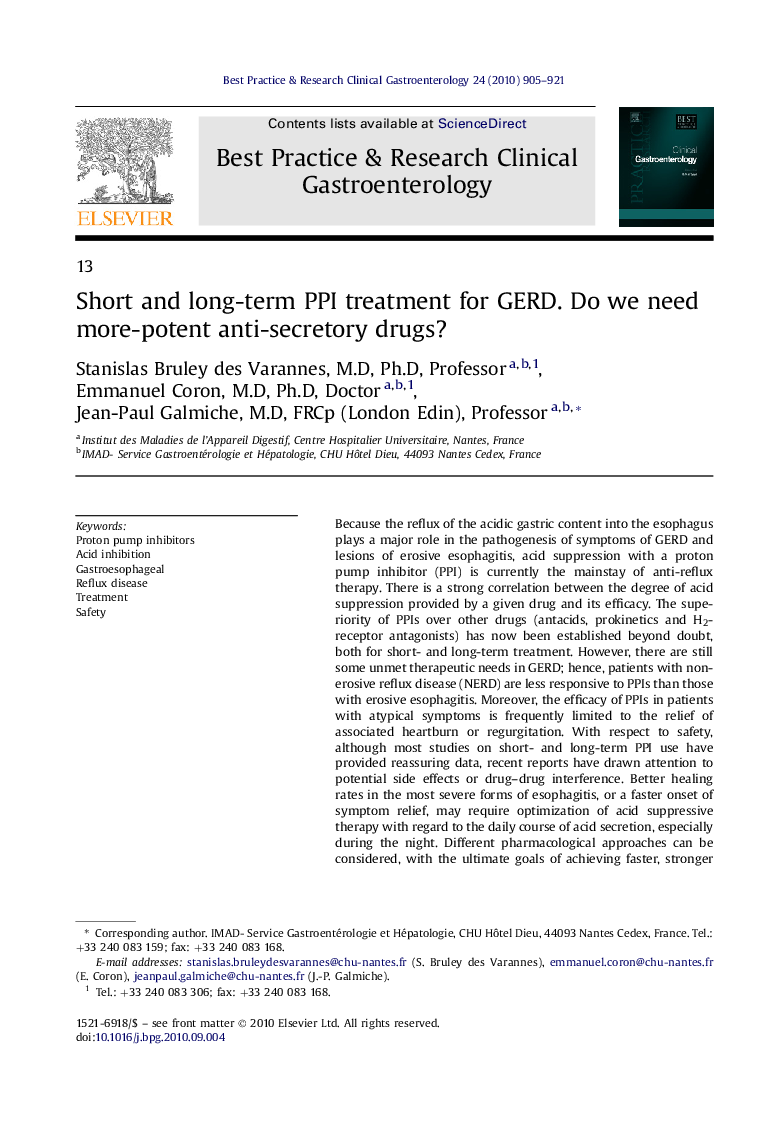| Article ID | Journal | Published Year | Pages | File Type |
|---|---|---|---|---|
| 3254383 | Best Practice & Research Clinical Gastroenterology | 2010 | 17 Pages |
Because the reflux of the acidic gastric content into the esophagus plays a major role in the pathogenesis of symptoms of GERD and lesions of erosive esophagitis, acid suppression with a proton pump inhibitor (PPI) is currently the mainstay of anti-reflux therapy. There is a strong correlation between the degree of acid suppression provided by a given drug and its efficacy. The superiority of PPIs over other drugs (antacids, prokinetics and H2-receptor antagonists) has now been established beyond doubt, both for short- and long-term treatment. However, there are still some unmet therapeutic needs in GERD; hence, patients with non-erosive reflux disease (NERD) are less responsive to PPIs than those with erosive esophagitis. Moreover, the efficacy of PPIs in patients with atypical symptoms is frequently limited to the relief of associated heartburn or regurgitation. With respect to safety, although most studies on short- and long-term PPI use have provided reassuring data, recent reports have drawn attention to potential side effects or drug–drug interference. Better healing rates in the most severe forms of esophagitis, or a faster onset of symptom relief, may require optimization of acid suppressive therapy with regard to the daily course of acid secretion, especially during the night. Different pharmacological approaches can be considered, with the ultimate goals of achieving faster, stronger and more-sustained acid inhibition. How a better pharmacological profile may translate into clinical benefit should now be tested in appropriate, controlled studies.
